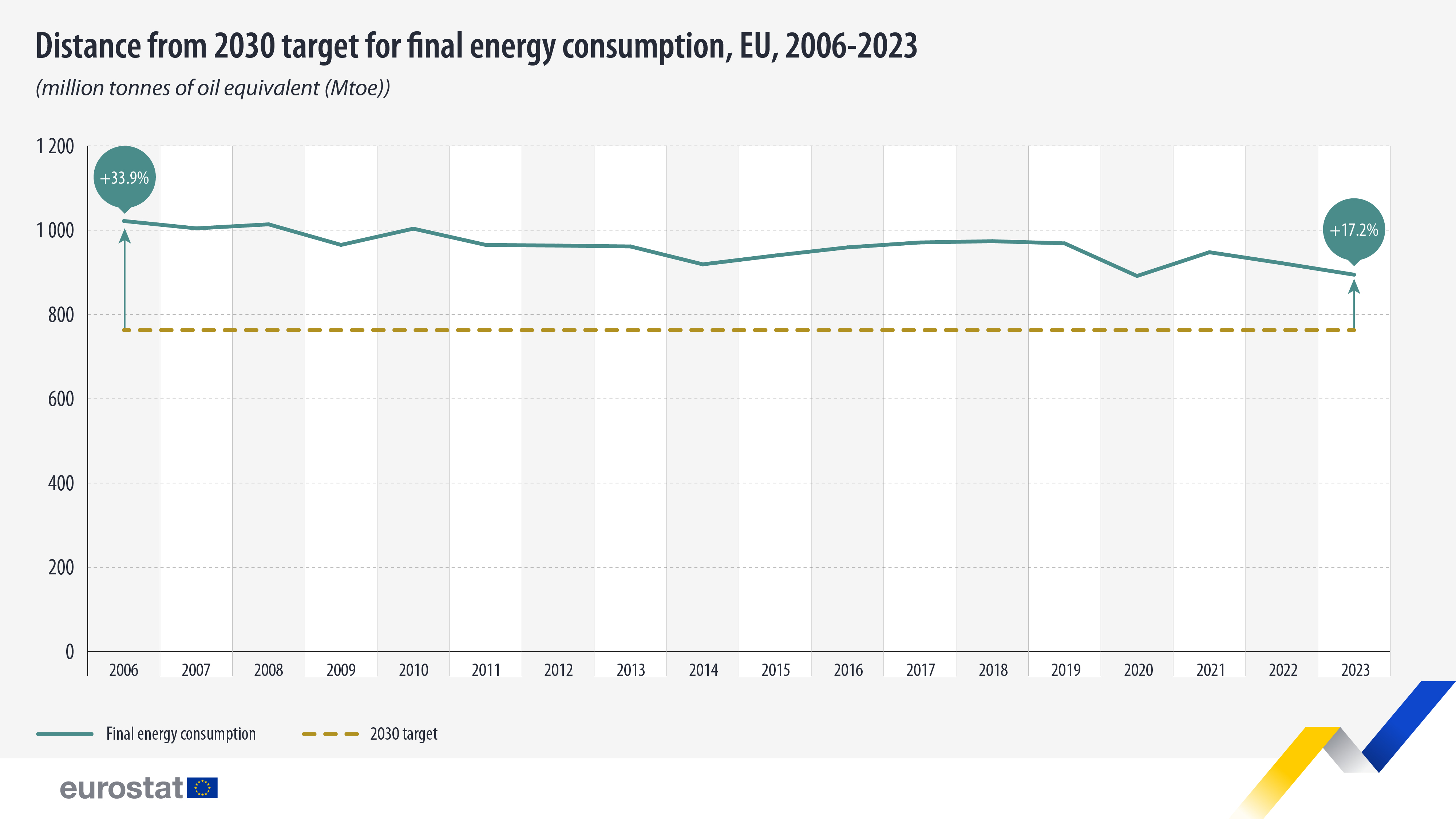rewrite this content and keep HTML tags
In 2023, primary energy consumption in the EU reached 1 211 million tonnes of oil equivalent (Mtoe), a 3.9% decrease compared with 2022. Data show that in 2023, the EU continued moving closer to the 2030 target of 992.5 Mtoe, with the gap narrowing to 22.0%.
Final energy consumption reached 894 Mtoe in 2023, a 3.0% decrease compared with 2022. In 2023, final energy consumption was 17.2% above the 2030 target (763 Mtoe), compared with 20.8% the year before.
This information comes from the most recent annual data on energy efficiency published by Eurostat. The article presents a handful of findings from the more detailed Statistics Explained article on energy efficiency.
Source dataset: nrg_ind_eff
The 1 211 Mtoe registered for EU primary energy consumption in 2023 was the lowest level since 1990 (the first year for which data are available), and 2% lower than in 2020, the year in which primary energy consumption saw a sharp decline due to the impact of the COVID-19 pandemic across sectors. Primary energy consumption peaked in 2006 at 1 511 Mtoe, when the EU was 52.3% away from the target.

Source dataset: nrg_ind_eff
In 2023, the EU consumed 894 Mtoe of final energy. This is the second lowest level since 1990, and only 0.3% (3 Mtoe) more than the record low figure registered in 2020.
Data presented in this article is based on annual energy data that is used to monitor progress towards achieving the targets laid out in the 2023 revision of the Directive on energy efficiency. The Directive sets ambitious targets of no more than 763 Mtoe for final energy consumption and no more than 992.5 Mtoe for primary energy consumption by 2030 (the 2018 Directive on energy efficiency set targets at 846 and 1 128 Mtoe, respectively).
For more information
Statistics Explained article on energy efficiency
Database on energy
Thematic section on energy
DG Energy dedicated website on energy efficiency
REPowerEU: affordable, secure and sustainable energy for Europe
Directive (EU) 2023/1791 on energy efficiency
Directive (EU) 2018/2002 on energy efficiency
Directive 2012/27/EU on energy efficiency
Methodological notes
Primary energy consumption measures total domestic energy demand, while final energy consumption refers to what end users actually consume. The difference relates mainly to the energy required by the energy sector itself and to transformation and distribution losses.
The revised Directive on energy efficiency raised the EU’s ambition for energy efficiency and established ‘energy efficiency first’ as a fundamental principle of the EU energy policy, giving it legal standing for the first time and obliging EU countries to consider energy efficiency in all relevant policy and major investment decisions.






















